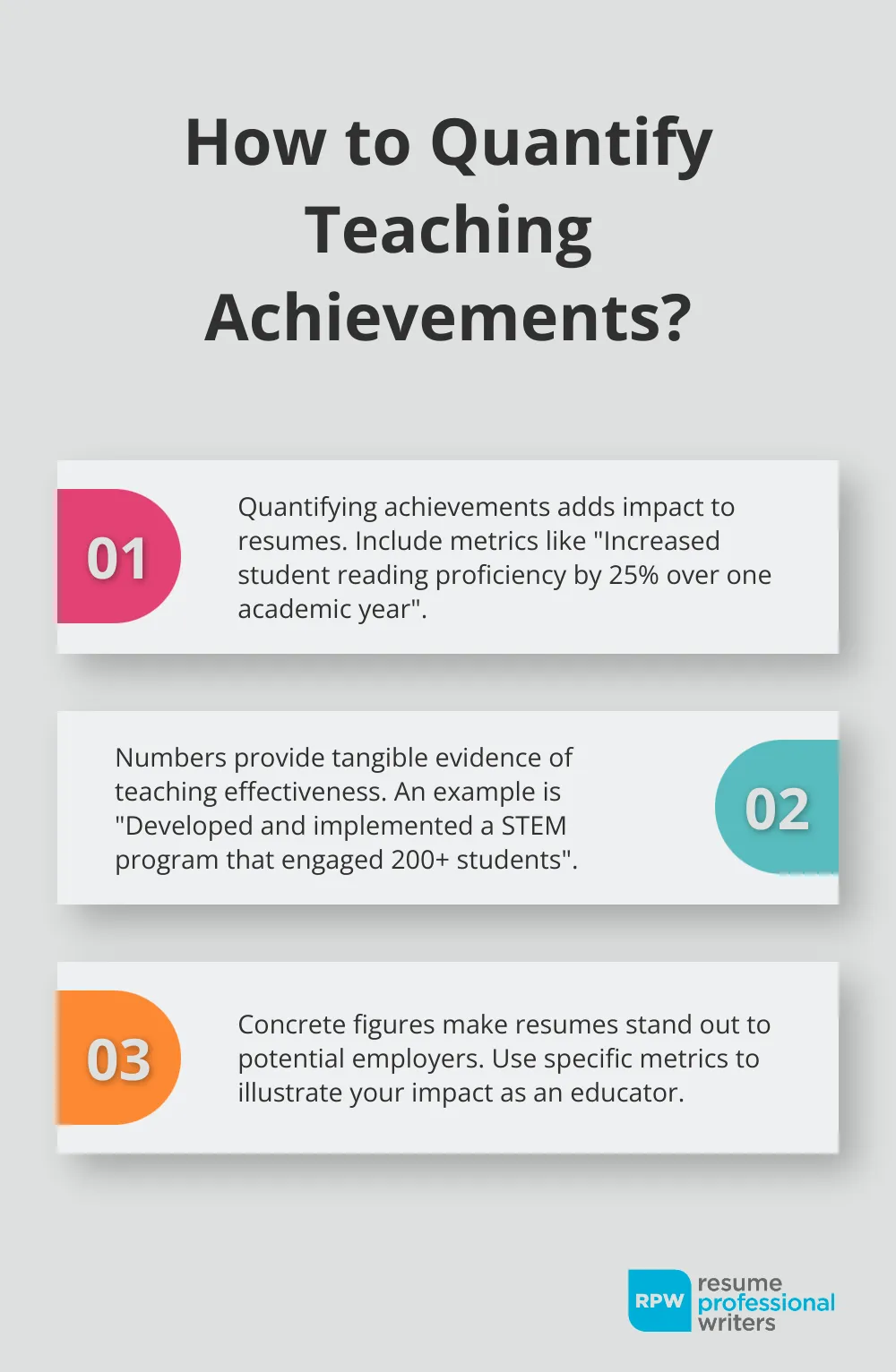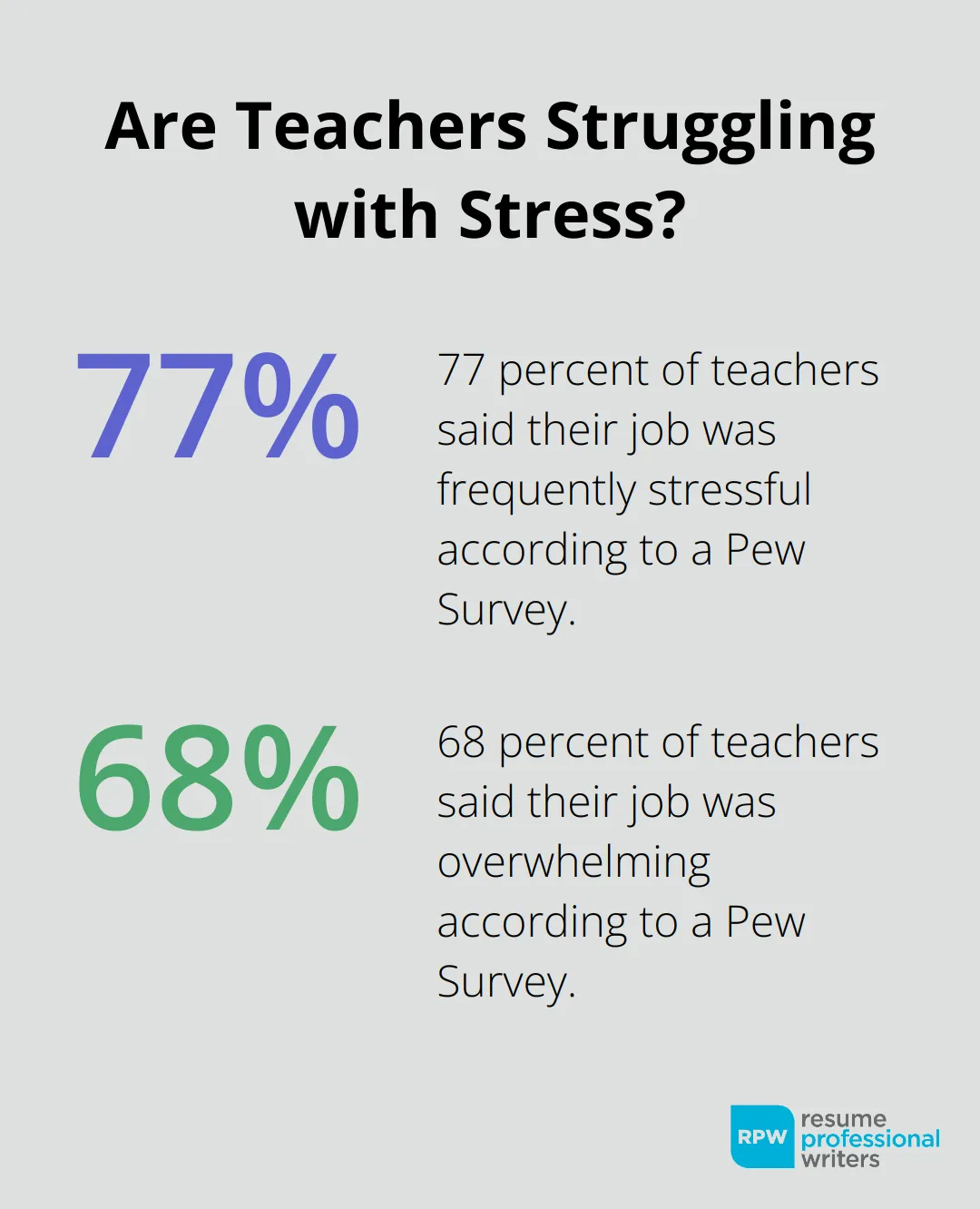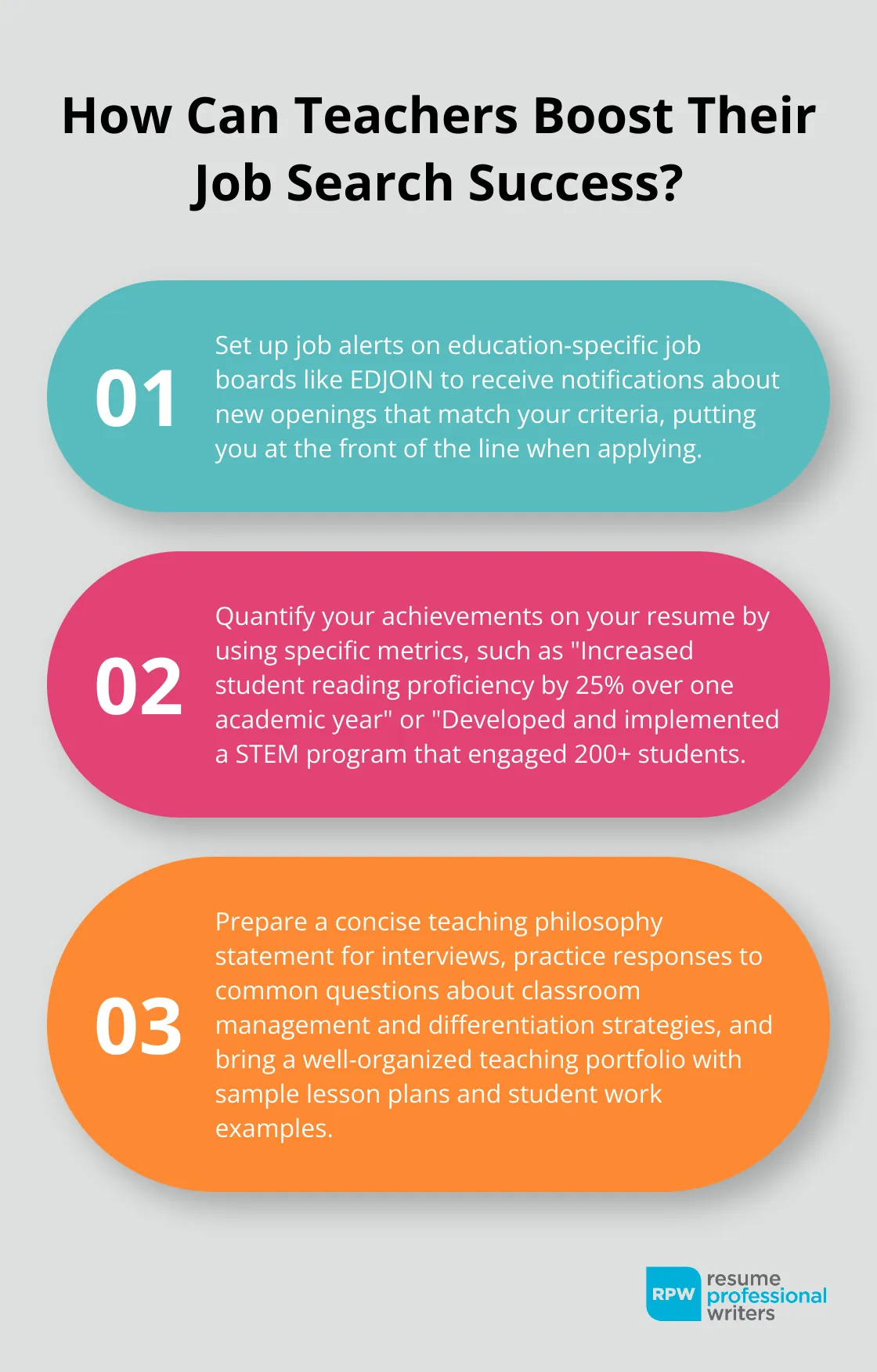Finding the right teaching job can be challenging, but with the right strategies, you can streamline your search and land your dream position.
We understand the unique challenges educators face when looking for employment opportunities. This guide will provide you with effective methods on how to search for teaching jobs and stand out in a competitive market.
From leveraging online resources to perfecting your interview skills, we’ll cover everything you need to know to secure your next teaching role.
Effective Job Search Tactics for Educators
Harness Online Job Boards
Educators must tap into education-specific job boards to find the best teaching opportunities. EDJOIN is the leading educational job site in the United States, offering a wide range of job opportunities in the education sector. Set up job alerts on these platforms to receive notifications about new openings that match your criteria. This proactive approach puts you at the front of the line when applying, giving you a competitive advantage.
Leverage Your Professional Network
Your network is a powerful asset in your job search. A LinkedIn survey reveals that over 70% of jobs are found through personal connections. Reach out to former colleagues, mentors, and fellow educators. Join professional associations such as the National Education Association (NEA) or the American Federation of Teachers (AFT). These organizations provide valuable resources and networking opportunities that often lead to job referrals.
Maximize Job Fair Opportunities
Education job fairs are gold mines for teaching positions. These events allow you to meet multiple school representatives in a short time, making them highly efficient for job seekers. Research participating schools and prepare a tailored elevator pitch for each before attending. Bring plenty of resumes and business cards, and follow up with contacts you make within 24 hours of the event.
Build a Strong Online Presence
In the digital age, your online presence can make or break your job search. Create a professional LinkedIn profile that showcases your teaching philosophy, accomplishments, and endorsements from colleagues. Consider developing an online portfolio that includes sample lesson plans, student work examples, and teaching videos. This digital showcase can set you apart from other candidates and provide tangible evidence of your teaching skills.
Utilize Resume Professional Writers’ Expertise
While self-promotion is essential, sometimes, professional help can give you the edge you need. Resume Professional Writers offers specialized services for educators, including resume writing and LinkedIn profile optimization. Our team understands the unique challenges of the education sector and can help you craft a compelling narrative that resonates with hiring committees.

The job search process in education requires a multi-faceted approach. As you implement these strategies, you’ll find yourself well-positioned to secure your ideal teaching role. The next step is to ensure your application materials (especially your resume) are top-notch and tailored to the positions you’re seeking.
How to Craft a Standout Teaching Resume
Tailor Your Resume to Each Position
A one-size-fits-all approach won’t cut it in today’s competitive job market. You must customize your resume for each teaching position you apply for. Review the job description carefully and incorporate relevant keywords and phrases into your resume. This strategy not only shows your attention to detail but also increases your chances of passing through Applicant Tracking Systems (ATS) used by many school districts.
Highlight Your Teaching Experience and Qualifications
Start with a powerful summary statement that encapsulates your teaching philosophy and most relevant qualifications. Then, detail your teaching experience, including student teaching and any substitute positions. For each role, focus on your accomplishments rather than just listing duties. Did you improve test scores? Did you implement a new curriculum? Did you mentor other teachers? These details will make your resume stand out.
Quantify Your Achievements
Adding numbers to your resume can make it stand out. Use metrics to illustrate your impact whenever possible. For example, “Increased student reading proficiency by 25% over one academic year” or “Developed and implemented a STEM program that engaged 200+ students.” These concrete figures provide tangible evidence of your effectiveness as an educator.
Showcase Your Teaching Philosophy
Include a brief section that outlines your teaching philosophy. This gives potential employers insight into your approach to education and classroom management. Try to keep this section concise (2-3 sentences) but impactful, focusing on your core beliefs about teaching and learning.
Include Relevant Professional Development
Highlight any professional development courses, workshops, or certifications you’ve completed. This shows your commitment to continuous learning and staying current with educational trends. Include the name of the course or certification, the institution that provided it, and the date of completion.

Your resume is more than just a list of qualifications; it’s a marketing tool that should sell your unique value as an educator. If you find it challenging to articulate your achievements effectively, consider seeking professional help. Resume writing services specializing in crafting resumes for educators can help highlight your strengths and align your resume with the specific requirements of teaching positions.
As you perfect your resume, the next step is to prepare for the interview process. Let’s explore how you can ace your teaching interviews and secure your dream job.
How to Ace Your Teaching Interview
Conduct Thorough School Research
Before your interview, investigate the school and district thoroughly. Review the school’s mission statement, recent achievements, and current challenges. This knowledge will allow you to align your responses with the school’s goals and values. If the school emphasizes STEM education, prepare to discuss how you’ve incorporated technology into your lessons.
Prepare for Common Interview Questions
Certain questions appear frequently in teaching interviews. Practice your responses to inquiries about classroom management, differentiation strategies, and handling difficult situations with students or parents. A Pew Survey found that 77 percent of teachers said their job was frequently stressful, and 68 percent said it was overwhelming, so prepare to discuss how you manage stress and maintain work-life balance.
Articulate Your Teaching Philosophy
Develop a concise statement that captures your teaching philosophy. This should reflect your beliefs about education, your approach to student engagement, and your methods for fostering a positive learning environment. Prepare to discuss how your teaching philosophy addresses classroom behavior and promotes student success.
Present a Compelling Teaching Portfolio
A well-organized teaching portfolio can distinguish you from other candidates. Include sample lesson plans, examples of student work, and data that demonstrates your impact on student achievement. If possible, incorporate technology by bringing a tablet to showcase digital projects or video clips of your teaching in action. This visual representation of your skills can create a lasting impression on interviewers.
Address Current Educational Challenges
Prepare to discuss current issues in education. Interviewers may ask for your perspective on improving educational outcomes. Have specific examples ready of how you’ve addressed challenges like student engagement or academic performance in your previous roles.
Follow Up Professionally
Send a personalized thank-you note to each interviewer within 24 hours after the interview. Reference specific points from your conversation to show your attentiveness and continued interest in the position. This small gesture can make a significant difference (some hiring managers report that fewer than 25% of candidates send thank-you notes).

Unlocking Opportunities in Your Teaching Career
A successful search for teaching jobs requires a strategic approach. You must utilize online job boards, network with fellow educators, and attend job fairs to maximize your opportunities. Your resume should highlight your unique strengths and align with each position’s requirements. Thorough interview preparation will set you apart from other candidates.

Professional development enhances your attractiveness to potential employers. You should stay current with educational trends, technologies, and best practices to remain competitive in the job market. Persistence plays a vital role in your job search, as the education sector often presents challenges.
Resume Professional Writers offers specialized services to give you an edge in your teaching job search. Our team can craft compelling resumes and optimize your LinkedIn profile to increase your visibility (and interview opportunities). These strategies will equip you to search for teaching jobs effectively and secure a position that aligns with your career goals.








